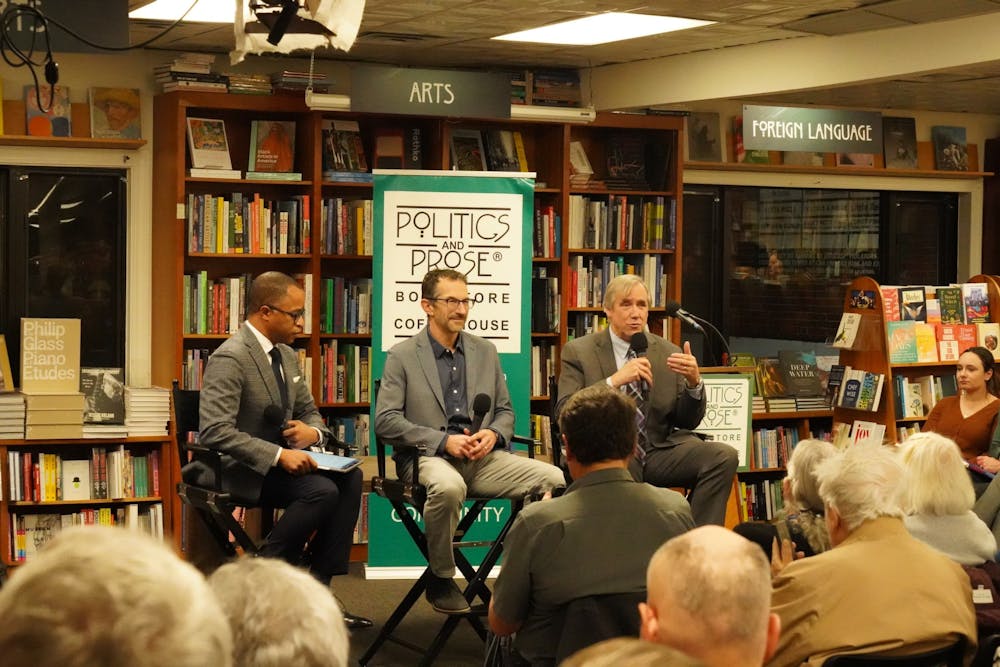Sen. Jeff Merkley and his former chief of staff Mike Zamore met at Politics and Prose bookstore on Jan. 23 to discuss their new book “Filibustered! How to Fix the Broken Senate and Save America.”
The two authors answered questions from Pulitzer Prize winner and associate editor of The Washington Post, Jonathan Capehart. Their conversation traced the history of the filibuster, its evolution and its threat to democracy.
The filibuster was originally implemented in the Senate as a tactic to prolong debate on bills and block them from being passed.
Due to increased use of the filibuster, Senate Rule 22 was established in 1917 allowing a cloture to limit debate and override a filibuster with a two-thirds majority vote. In 1975, this changed to three-fifths of the majority (or 60 Senate votes), required to end debate.
The reform in 1975 created the “no-talk” filibuster. This means that the minority can simply declare their desire to filibuster without participating in lengthy speeches and require a supermajority of 60 votes to pass legislation. This has created an incredibly difficult threshold to meet and makes it hard to move legislation along.

According to Merkley and Zamone, the “no-talk” filibuster is harmful to our democracy because simple issues are not properly being addressed. This, they said, has created a dysfunctional and gridlocked Senate.
Merkley compared the supermajority and passing bills to “walking in a field of mud up to your calf.”
“Every step is so hard,” Merkley said. “Every little simple thing takes a week.”
This delay in accomplishing tasks in the Senate is “so destructive of our democracy,” according to Merkley, because constructive debates are rarely taking place.
The authors emphasized that restoring a version of the original talking filibuster will provide balance and grant a voice to the minority, which would allow for more fairness and productivity.
“The Senate doesn’t want to be the House, where the minority is irrelevant,” Merkley said.
The “villain” of Merkley and Zamore’s book is former Senate Majority Leader Mitch McConnell. According to Merkley and Zamore, McConnell took advantage of the filibuster to pull through a Republican agenda and halt the minority during his tenure.
Silencing the minority is considered one of McConnell's most consequential tactics during his time as Senate Majority Leader.
“The bottom line is the majority of the Senate can do whatever the majority of the Senate decides it wants to do,” Zamore said. “They can hide behind the minority … but if the majority wants to interpret the rules a certain way, they have the power to do so.”
Merkley and Zamore say that a talking filibuster will give both the majority and the minority a chance to vote and partake in effective democratic practices.
A talking filibuster with real debates and speeches could reform the gridlocked atmosphere of the Senate by emphasizing important issues and maintaining accountability.
The book warns that the Senate will continue to experience obstruction without a successfully functioning system. When there is proper reform of the filibuster, hope in democracy will be restored as expressed in their discussion.
The authors hosted a book signing at the end of their discussion for audience members. Hardcover and e-book versions of “Filibustered! How to Fix the Broken Senate and Save America” are available to purchase at bookstores around D.C.
“Fix the Senate and save America,” Merkley said.
This article was edited by Marina Zaczkiewicz, Sara Winick and Abigail Pritchard. Copy editing done by Luna Jinks, Isabelle Kravis and Charlie Mennuti.





